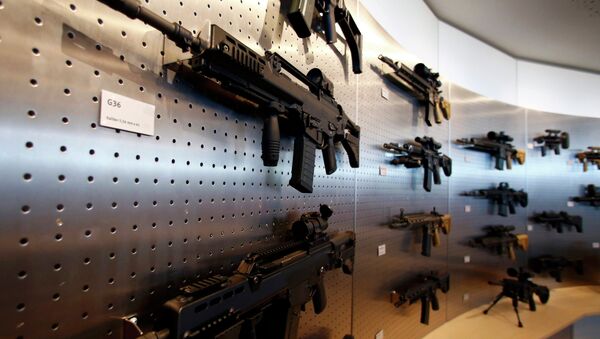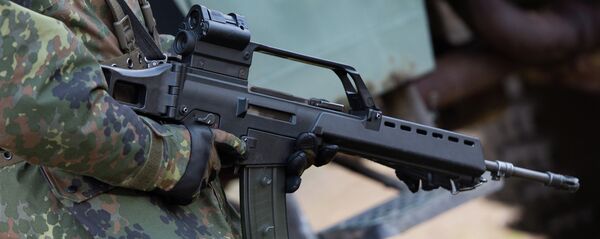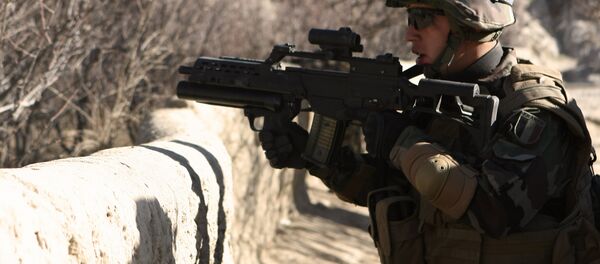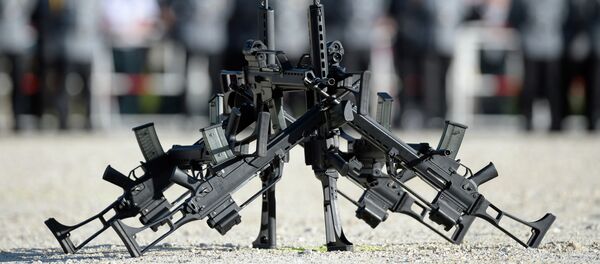Heckler & Koch’s HK416 assault rifle is said to have been used to kill Osama bin Laden and the G36 is standard issue for militaries around the world. Since HK started producing the G36 assault rifle in 1997, the company has delivered nearly 180,000 to German armed forces.
But now, Berlin says, the G36 does not shoot straight in hot weather or when it heats up through constant firing.
"This weapon, the way it is now constructed, has no future in the German armed forces," Defence Minister Ursula von der Leyen said last month.
HK insists there is nothing wrong with the G36, a gun it began delivering to the armed forces almost 20 years ago and has sold to more than 30 other countries. Executives said the company is considering legal action against the government for what it sees as politically motivated slander.
"We are convinced that there is some sort of campaign against us," said Andreas Heeschen, a 54-year-old German investor who bought the firm from British Aerospace — now BAE Systems — in 2002.
HK also is no longer benefitting from Germany's formerly aggressive export policies. Last year, Berlin reversed course on arms exports following media criticism. HK also holds a licensing deal in the Middle East, but tighter restrictions hit revenues by 50 million euros last year, Reuters reported.
Questions about the G36’s performance date back to April 2010, when 32 German paratroopers were ambushed by Taliban fighters in northern Afghanistan. Three German soldiers were killed in a nine-hour firefight. The G36 was said to have overheated, forcing the Germans to retreat.
For years no action was taken. Then defense minister von der Leyen commissioned a new study of the weapon. It was completed last month and the results were damning.
"In demanding battle situations, precise engagement of the enemy is not reliable," the confidential report, seen by Reuters, reads.
HK is puzzled as to why Germany suddenly has a problem with a weapon its military has used for years. The firm is also wondering why other countries have not complained and, in Germany, why politicians rather than troops are criticizing it.
"It looks to me like von der Leyen has jumped at the chance to send a tough message to a company that cannot fight back because it's relatively small and has an image problem," Thomas Wiegold, a Berlin journalist who blogs on defense issues, told Reuters.
A German officer with experience in Afghanistan, who spoke to Reuters on condition of anonymity, said: "Any weapon gets hot if you shoot it long enough. The G36 is not a machine gun and it's not made to be one."
Some suspect HK is being targeted for embarrassing the government by illegally sending arms to places like Mexico, where thousands of guns were delivered despite an export ban because of corrupt police forces.
HK ended up dismissing two executives it said had acted alone in facilitating the illegal Mexican exports.
Now fighting to survive, HK is scrambling to repair its reputation and finances. Last week, during a visit by a small group of reporters to HK headquarters in Oberndorf, the company tried to emphasize the quality of its work.
"We make a product," one longtime employee said. "Others decide whether it is used to kill."





